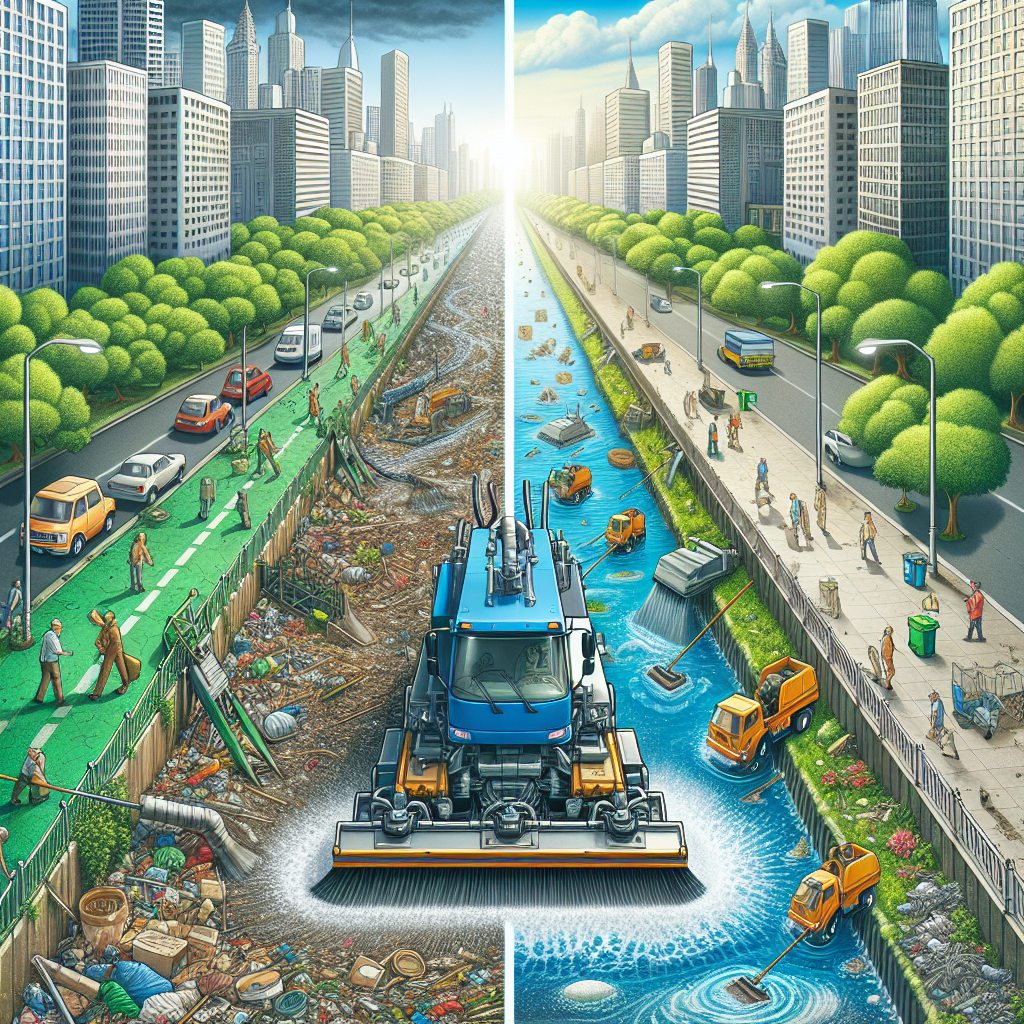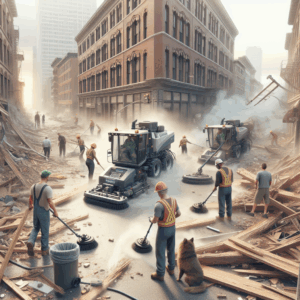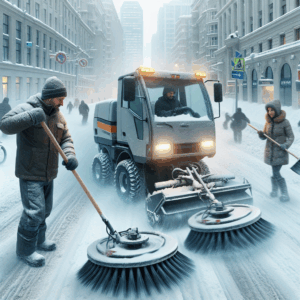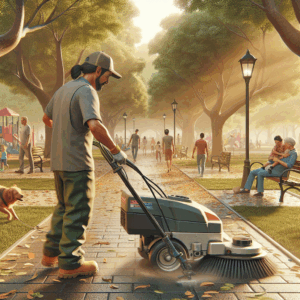In urban areas, water pollution is a big problem. When it rains, water flows over streets and sidewalks, picking up trash, dirt, and chemicals. This dirty water often ends up in rivers, lakes, and oceans. But there’s something called power sweeping that helps keep our water clean. Let’s discover how power sweeping works and why it’s important for water quality in cities.
What is Power Sweeping?
Power sweeping is like having a big, super-powered vacuum cleaner for the streets. It’s done by special vehicles called street sweepers. These machines are equipped with brushes and strong suction to pick up debris, dirt, and leaves from the roads. By cleaning the streets regularly, these machines stop trash and grime from getting washed away by rainwater into our waterways.
How Does It Improve Water Quality?
-
Stops Pollution Before It Starts: When garbage and dirt are left on the street, rainwater can carry them into storm drains, and from there, straight into rivers and lakes. Street sweepers capture these pollutants before they can reach the waterways.
-
Prevents Harmful Chemicals: Urban areas use a lot of chemicals like motor oil, antifreeze, and fertilizers. If these chemicals aren’t cleaned up, they can be harmful to fish and other wildlife. Power sweepers pick up these chemicals with the dirt, stopping them from polluting water bodies.
-
Reduces Algae Growth: Leaves and grass clippings left on the street can contribute to algae blooms in water bodies. These blooms use up the oxygen that marine life needs to survive. Street sweeping helps eliminate this problem by removing plant material before it reaches the water.
Benefits of Power Sweeping
-
Protects Wildlife: Cleaner water is crucial for fish, frogs, and other aquatic animals. When we reduce the amount of pollution entering their habitats, we help protect these species.
-
Improves Waterways’ Health: Clean water bodies can support more plants and animals. When less debris enters the water, algae and other harmful organisms can’t take over, which means healthier rivers and lakes.
-
Enhances City Beauty: Besides protecting water quality, power sweeping also makes cities look nicer. Clean streets are more pleasant for people who live and work there, and they encourage more outdoor activities.
Community Involvement
Communities can also help improve water quality by being mindful of how we dispose of waste. Here are some easy ways to help:
-
Dispose of Trash Properly: Always throw trash in a bin, not on the street.
-
Limit Chemical Use: Use fewer chemicals in your garden and on your car.
-
Participate in Clean-Up Events: Join local street clean-ups to help keep neighborhoods tidy.
-
Share Knowledge: Tell friends and family about the importance of keeping streets clean to protect our water.
Conclusion
Power sweeping is an essential practice in urban areas for protecting our water resources. By preventing trash, dirt, and chemicals from entering our waterways, it helps create a cleaner, healthier environment for both humans and wildlife. Next time you see a street sweeper at work, remember all the good it’s doing to keep water clean and our cities beautiful. Together, with community involvement and awareness, we can all help improve water quality in our urban spaces.









